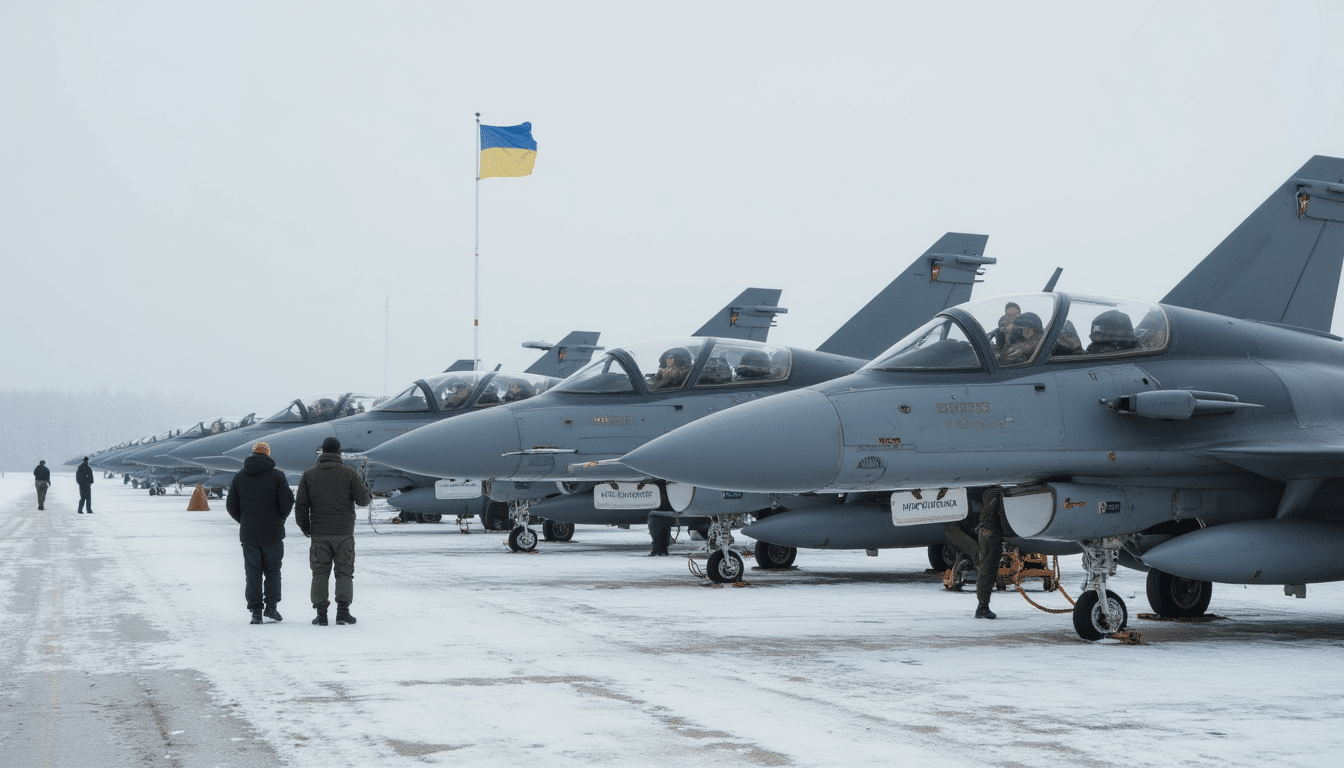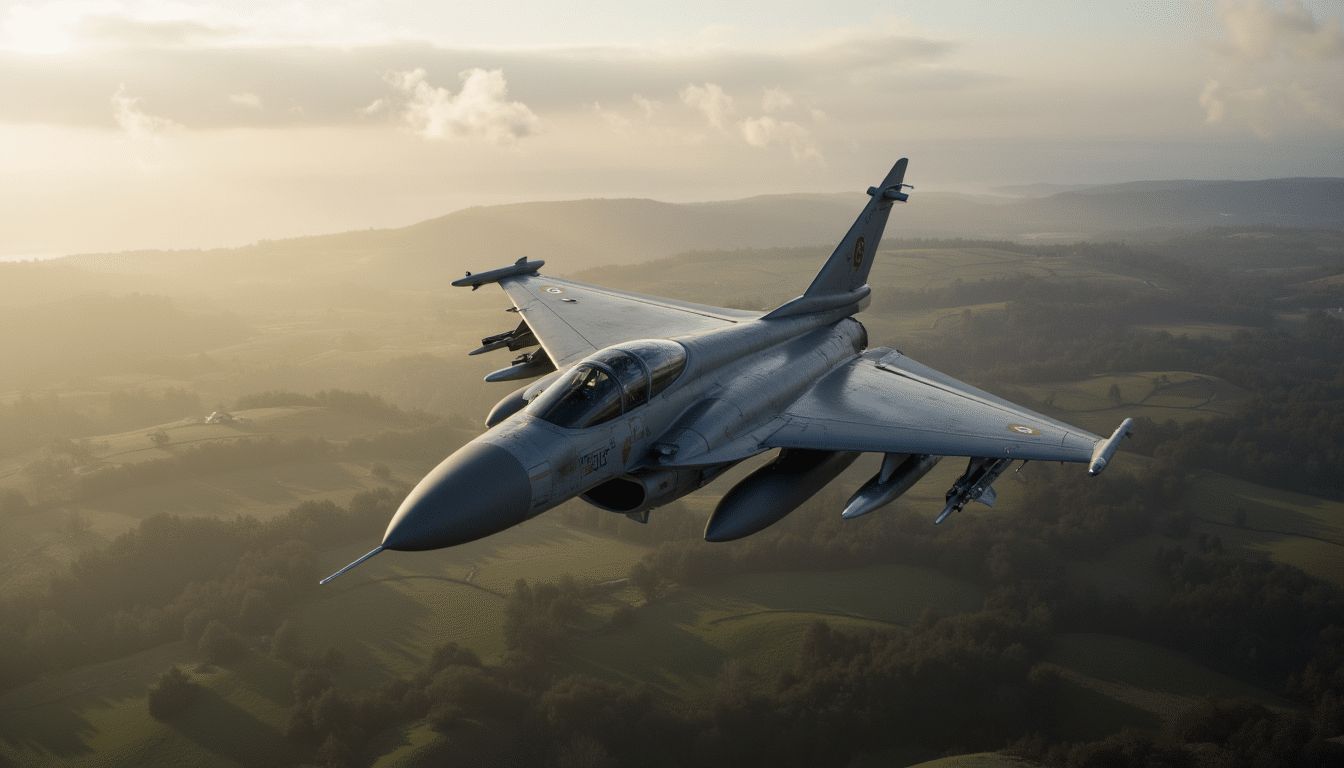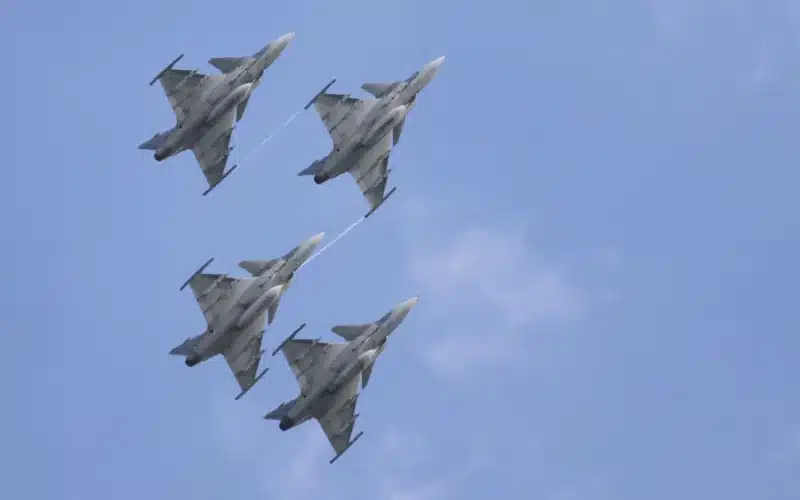Aviation News
Ukraine, Sweden agree on major 100-plus Gripen E fighter deal
Sweden and Ukraine have signed a significant defense agreement for more than 100 Saab JAS 39 Gripen E fighters. Announced by Swedish Prime Minister Ulf Kristersson, the deal would be one of the largest fighter exports in Saab’s history. Deliveries could begin within three years of a finalized contract. The move marks a major leap in air combat capability for Ukraine.
Overview of the Gripen E Fighter
The Gripen E combines advanced sensors and data links that let it operate effectively in contested airspace. These systems make it a valuable asset for strengthening Ukraine’s air combat power.
Features and Capabilities
The fighter offers enhanced performance and survivability. It uses advanced avionics, a reinforced airframe, and an efficient engine. Together, these features help the Gripen E outmaneuver and outperform other aircraft in its class.
Comparison with Other Aircraft
The table below highlights key differences between the Gripen E and its competitors.
| Aircraft | Key Features |
|---|---|
| Gripen E | Advanced sensors, data links, dispersed-operations performance |
| F-16 Fighting Falcon | Proven track record, wide adoption, extensive upgrades |
The Gripen E’s technology and versatility make it an attractive choice for Ukraine’s future fleet, offering a major boost in capability.

Ukraine’s Defense Needs
Ukraine’s defense strategy emphasizes air superiority and advanced surveillance. The purchase of 100 plus Gripen E fighters would address both priorities and improve its deterrence posture.
Strategic Importance of Modern Fighters
Modern aircraft like the Gripen E provide high maneuverability and advanced weaponry. These advantages help Ukraine counter aerial threats and strengthen its defensive reach.
Current Military Situation
The ongoing war with Russia has depleted Ukraine’s air force. Many aircraft are outdated and in urgent need of replacement. The Gripen E deal would deliver a long-term solution by modernizing Ukraine’s fleet and improving its readiness. With advanced sensors and data-link systems, Ukraine could respond faster to new threats and better protect its sovereignty.
Sweden’s Role in the Deal
Sweden plays a central role in this agreement. Economic and political factors shape the negotiations, including production capacity and the impact on Saab’s backlog.
Political Considerations
The deal depends on the outcome of the war with Russia. Swedish Defense Minister Pål Jonson stressed the risks of sending advanced jets into an active conflict. Further talks are required before procurement begins.
Economic Implications
A contract of this scale would expand Saab’s production backlog and benefit Sweden’s economy. It would also require major financing from Ukraine. Analysts expect government-backed loans, export credits, and private investment to support the deal. Both nations could see long-term economic gains such as job creation, industrial growth, and stronger bilateral cooperation.
Long-Term Vision After the War
The agreement signals a step toward rebuilding Ukraine’s air power. Gripen deliveries could start within three years of a finalized contract. The letter of intent opens formal discussions but is not yet binding.
Future Defense Strategies for Ukraine
Acquiring more than 100 Gripen E fighters would bolster Ukraine’s defense. A large, modern fleet with enhanced sensors and dispersed-operations performance would transform the nation’s air capabilities.
Strengthening Regional Security
This purchase would also influence regional stability. A larger Saab production backlog and the transfer of up to 150 Gripen E jets would make it one of Saab’s biggest exports. Sweden and Ukraine are considering a mixed delivery approach that combines refurbished airframes with new builds. This plan could speed up Ukraine’s transition to a next-generation air force and strengthen regional security across Europe.

Possibility of Older Gripens
Sweden may also release a small number of Gripen C/D fighters before the E variant enters full service. Around ten aircraft could reach Ukraine earlier, depending on Sweden’s transition timeline.
Integration into Ukrainian Forces
Integrating these fighters would immediately enhance Ukraine’s air combat capabilities. Their advanced sensors and data links improve performance in contested skies.
Benefits and Challenges
The deal could expand Saab’s backlog but also carries risks. Delivering advanced aircraft into a conflict zone remains complex. Timing, financing, and scope are still under discussion. Both governments emphasize that more talks are needed before formal procurement. Despite uncertainties, the agreement could result in 100 to 150 Gripen E fighters, marking one of the largest defense exports in Saab’s history.
Industrial and Political Impact
The proposed sale would increase Saab’s production workload and boost Sweden’s defense industry. It also gives Ukraine a significant jump in air-combat capability through advanced sensors, data links, and dispersed-operations design.
Effects on the Swedish Defense Industry
Saab would experience strong production growth from the potential order of 100 plus Gripen E fighters—one of the largest exports in its history.
Implications for International Relations
The deal could reshape European defense relations. It may tighten cooperation between Sweden and Ukraine while raising tensions with Russia. Swedish Defense Minister Pål Jonson confirmed that any new-build Gripen E deliveries will only occur after the war ends. The sale’s strategic impact could redefine regional power dynamics for years to come.
Conclusion
The Ukraine–Sweden Gripen E deal represents a turning point for both nations. It promises to expand Saab’s production, strengthen Ukraine’s defense, and reshape Europe’s aerial balance. If completed, it will stand as one of Saab’s largest fighter exports and a vital step toward regional security and air-combat modernization.
Sweden and Ukraine eye export deal for up to 150 fighter jets
Frequently Asked Questions – Sweden-Ukraine Gripen E Fighter Deal
What is the deal between Sweden and Ukraine regarding the Gripen E fighters?
Sweden and Ukraine have signed a letter of intent for a future purchase of up to 100–150 Saab JAS 39 Gripen E fighter jets. The agreement marks a significant step in their defence collaboration and opens the way for a major export deal for Sweden’s defence industry.
Why is Ukraine interested in acquiring the Gripen E jets?
Ukraine aims to modernise its air force and enhance its air-combat capability. The Gripen E offers advanced sensors, data links and dispersed-operations performance, making it well suited for contested environments.
When could deliveries of the Gripen E begin for Ukraine?
According to Swedish officials, the first deliveries could take place within about three years of a contract being finalised. However, the letter of intent is non-binding and production capacity and political conditions remain key factors.
Is this a binding contract that guarantees 100+ jets for Ukraine?
No. The current agreement is a letter of intent and not a binding contract. It outlines intent for up to 100-150 jets but does not commit to exact quantities or delivery schedules. :contentReference[oaicite:6]{index=6}
What are the main challenges or conditions for the deal to proceed?
The transfer of advanced fighters faces conditions including Sweden’s production capacity, Ukraine’s ability to integrate a new aircraft type, funding and financing arrangements, and broader political/defence export considerations.
How many aircraft are being discussed in the deal?
While the headline figure is up to 100–150 Gripen E jets, Swedish officials have described this as the “start of a long journey over 10-15 years,” rather than a near-term delivery of all units.
How will the deal affect Sweden’s defence industry and Saab?
Such a large potential export would significantly expand the backlog of Saab, strengthen Sweden’s defence-industrial base, spur jobs, and enhance industrial cooperation with Ukraine.

